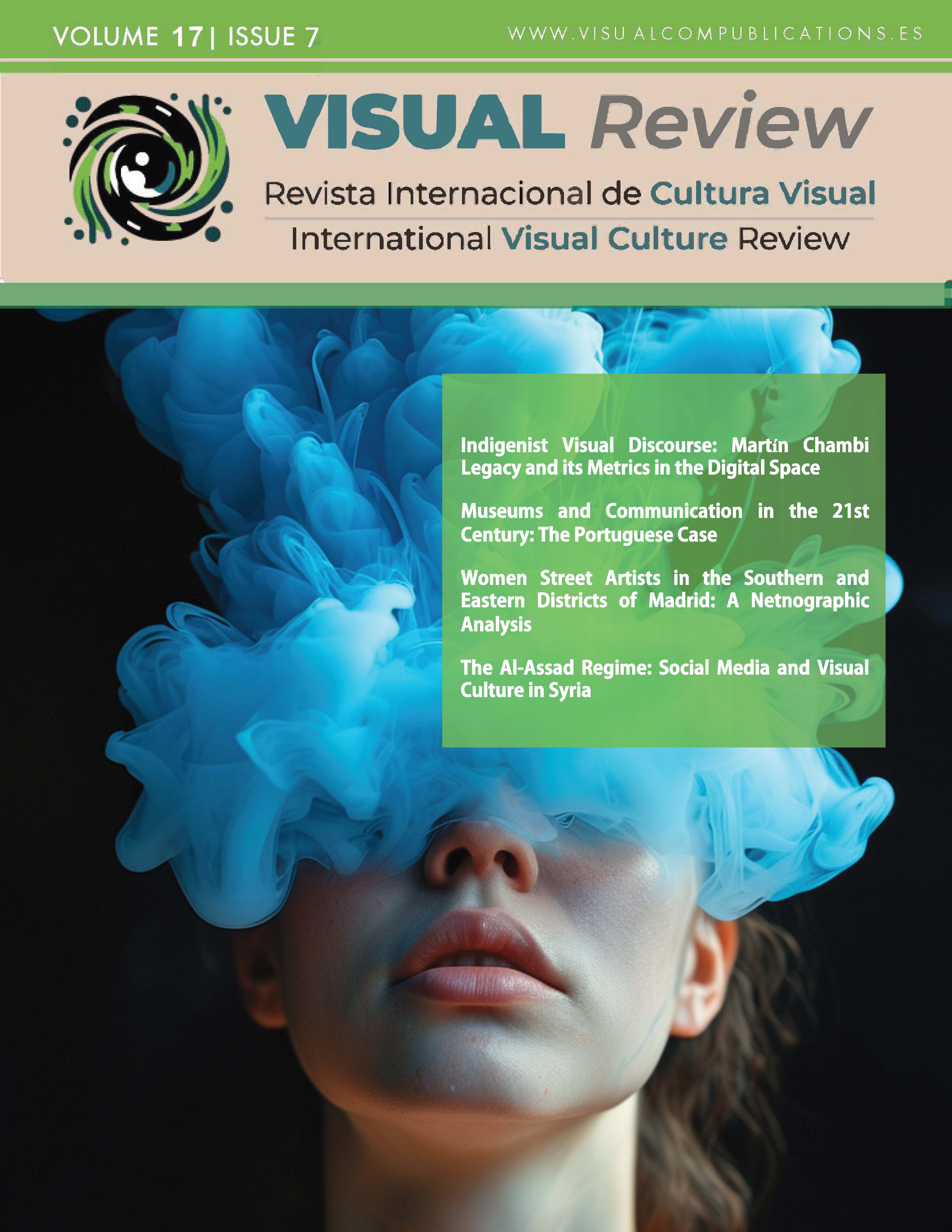Social Networks
Reason, Freedom, Existence
DOI:
https://doi.org/10.62161/revvisual.v17.6054Keywords:
Philosophy, Existence, MetaphysicsAbstract
In the first quarter of the 21st century, social networks are subject of disillusionment. Like the rest of TICS, the hopes placed in them in relation to reason, deliberation and democracy seem to have been shattered. Nor does the other pole of modernity, freedom, seem to be satisfied with social nethworks. Heidegger and his approach to technology provides the metaphysical key to understanding the essence of social networks, and points out a way of access that is an ontological interpretation in a realist key, of which three of the fundamental aspects will be outlined.
Downloads
Global Statistics ℹ️
|
126
Views
|
79
Downloads
|
|
205
Total
|
|
References
Adorno, T. y Horkheimer M. (2016). Dialéctica de la Ilustración. Trotta.
Aristóteles (2005). Ética a Nicómaco. Alianza Editorial.
Aristóteles ( 2023). Metafísica. Gredos.
Aron, R. (1994). Les Désillusions du progres. Calmann Levy
Baudrillard, J. (1997). La guerra del golfo no ha tenido lugar. Anagrama.
Benanti, P. (2020). La era digital. Encuentro.
Caldevilla, D. (2013). Efectos actuales de la “Sobreinformación” y la “Infoxicación” a través de la experiencia de las bitácoras y del proyecto I+D avanza ‘Radiofriends’. Revista de Comunicación de la SEECI, 0 (30), p.34. https://doi.org/10.15198/seeci.2013.30.34-56
Castells, M. (2008). Los nuevos espacios de la comunicación, en Comunicación, poder y contrapoder en la sociedad red (II). Telos nº 74.
Descartes, R. (2010). Discurso del Método. Austral.
Elías-Zambrano, R., & Cabezuelo-Lorenzo, F. (2024). Arte, Creatividad y Redes Sociales: Una revisión crítica del universo daliniano en Instagram. VISUAL REVIEW. International Visual Culture Review Revista Internacional De Cultura Visual, 16(4), 187–196. https://doi.org/10.62161/revvisual.v16.5294
Ferraris, M. (2013). Manifiesto del nuevo realismo. Biblioteca Nueva.
Ferraris, M. (2021). Documanitá. Filosofia del nuevo mondo. Laterza.
Fundación Telefónica (2024). El diagnóstico del ‘brain rot’: más que fatiga mental. Telefónica. Consultado 27 enero 2025 (https://telos.fundaciontelefonica.com/?pdf=25625)
González Torres, J. (2018). ¿Picasso, Dalí o Frida tenían redes sociales? La vida como espectáculo o un antecedente para la construcción moderna de subjetividades virtuales . VISUAL REVIEW. International Visual Culture Review Revista Internacional De Cultura Visual, 5(2), 101–112. https://doi.org/10.37467/gka-revvisual.v5.1824
Gabriel, M. (2015). Por qué el mundo no existe. Pasado y presente.
Habermas J. (1989). Teoría de la acción comunicativa. Cátedra.
Habermas J.(1986). Ciencia y técnica como ideología, Tecnos.
Habermas, J. (1993). El discurso filosófico de la modernidad. Taurus.
Habermas, J (2014), Internet and Public Sphere: What the Web Can’t Do. Jürgen Habermas interviewed by Markus Schwering 24 July 2014 (https://www.resetdoc.org/story/internet-and-public-sphere-what-the-web-cant-do/ consultado 20 enero 2025)
Heidegger, M. (1966), Sólo un Dios puede salvarnos, entrevista Der Spiegel, septiembre 1966 (https://repositorio.unal.edu.co/handle/unal/47530 consultado 20 enero 2025).
Heidegger, M. (2021), La pregunta por la técnica, Herder.
Herrero, M (2012), Ficciones políticas. El eco de Thomas Hobbes en el ocaso de la. Modernidad. Katz.
Kant, I. (2013). Qué es la Ilustración y otros escritos. Alianza.
Lyotard, J-F. (2021) La condición postmoderna. Cátedra.
Nietzsche, F. (2018). Más allá del bien y del mal. Tecnos.
Regueiro, A. (2024). Dimensión de la «verdad» a partir de la concepción «fenoménica» de la realidad: repensamiento de la estructura metafísica y cuestiones relativas al perspectivismo nietzscheano. Logos. Anales Del Seminario Metafísica 57 (2), pp. 291-307.
Sáez Rueda, L. (2012). Ser errático. Una ontología crítica de la sociedad. Trotta.
Sartori, G. (1997). Homo videns. La sociedad teledirigida. Taurus-Homo Sapiens.
Stiegler, B (2015). States of Shock: Stupidity and Knowledge in the Twenty-First Century. Polity.
Stengers, I. (2012). En tiempos de Catástrofes: cómo resistir a la barbarie que viene. Ned Ediciones.
De Aquino, T. (2023). Suma Teológica. vol. BAC.
Van Leeuwen, H. (2009). Only a God Can Save Us: Heidegger, Poetic Imagination and the Modern Malaise. Common Ground Publishing
Downloads
Published
How to Cite
Issue
Section
License
Copyright (c) 2025 Authors retain copyright and transfer to the journal the right of first publication and publishing rights

This work is licensed under a Creative Commons Attribution-NoDerivatives 4.0 International License.
Those authors who publish in this journal accept the following terms:
-
Authors retain copyright.
-
Authors transfer to the journal the right of first publication. The journal also owns the publishing rights.
-
All published contents are governed by an Attribution-NoDerivatives 4.0 International License.
Access the informative version and legal text of the license. By virtue of this, third parties are allowed to use what is published as long as they mention the authorship of the work and the first publication in this journal. If you transform the material, you may not distribute the modified work. -
Authors may make other independent and additional contractual arrangements for non-exclusive distribution of the version of the article published in this journal (e.g., inclusion in an institutional repository or publication in a book) as long as they clearly indicate that the work was first published in this journal.
- Authors are allowed and recommended to publish their work on the Internet (for example on institutional and personal websites), following the publication of, and referencing the journal, as this could lead to constructive exchanges and a more extensive and quick circulation of published works (see The Effect of Open Access).














